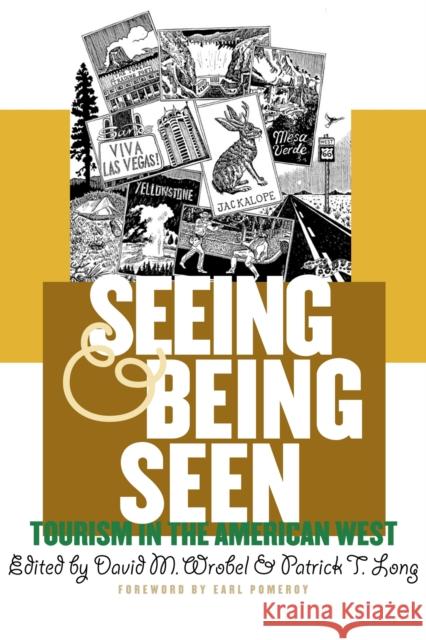Seeing and Being Seen: Tourism in the American West » książka
topmenu
Seeing and Being Seen: Tourism in the American West
ISBN-13: 9780700610839 / Angielski / Miękka / 2001 / 352 str.
You can see them cruising for Indian art in Santa Fe, waiting for Old Faithful at Yellowstone, or pausing for shrimp cocktails on San Francisco's Fisherman's Wharf. The American West attracts vacationers of every stripe, who comb its varied landscapes for the ultimate trip. And for better or worse, those who come to see this multifaceted region have changed what they have come to see.
Seeing and Being Seen explores the history of tourism in the American West and examines its effects on both the tourists and the places and people they visit. Scholars from the humanities, social sciences, and business-Patricia Nelson Limerick, Hal Rothman, and others-join government and National Park Service professionals to investigate the dilemmas that tourism poses for western communities, from economic and environmental questions to cultural change. The selections are organized around three broad topics: scholarly perceptions of tourism, tourists, and those toured upon; tourism in its historical context, including an assessment of its cultural impact on communities and on tourists themselves; and the history and impact of tourism on the West's national parks, with particular emphasis on efforts to maintain the delicate balance between natural preservation and public enjoyment. These essays cover the span of tourism history, from early-twentieth-century "See America First" campaigns to the problematic place of automobiles in national parks today. They also pay special attention to policy choices that the growth of tourism sometimes forces on communities, as towns try to bounce back from failed economies by capitalizing on an "Old West" image--or even, in the case of Kellogg, Idaho, "Old Bavarian." In response, the authors offer suggestions by which communities can begin to make rational choices about the role and place of tourism in their lives. Seeing and Being Seen is enlightening--and necessary--reading for scholars, policy makers, residents of the West, and even tourists themselves.










